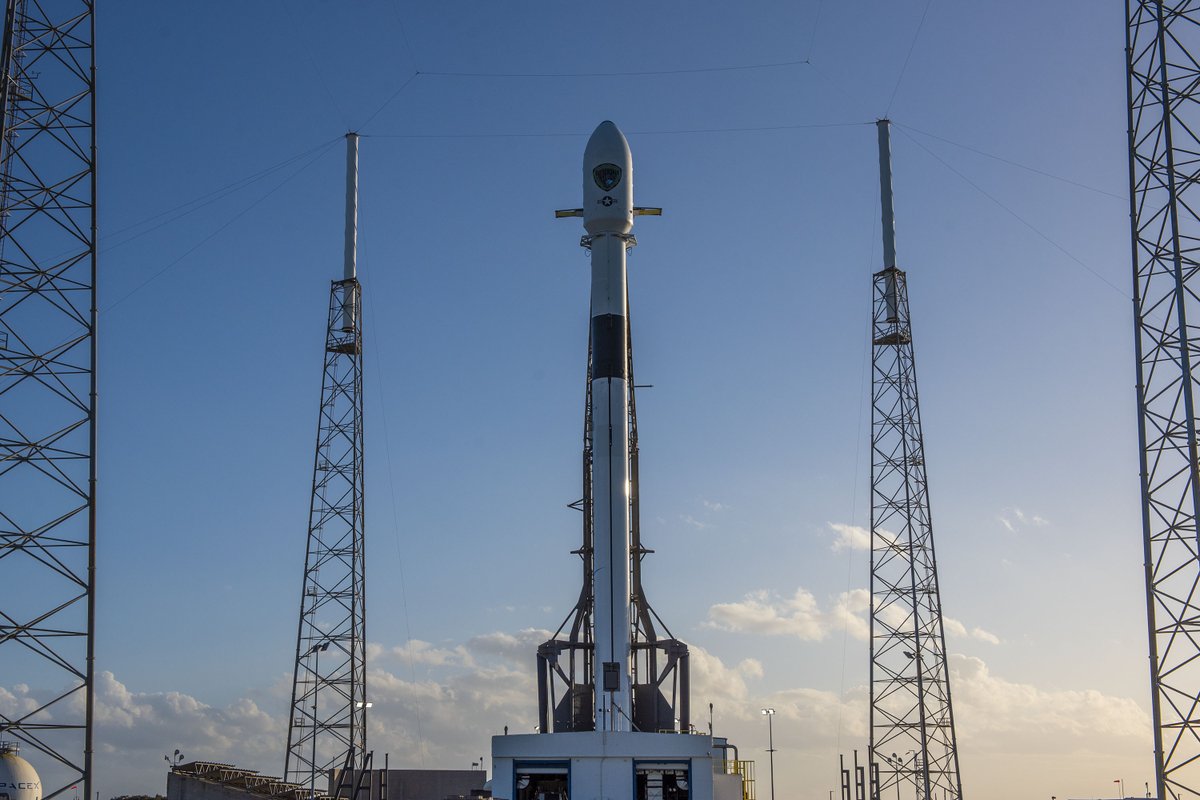High Winds Delay SpaceX Launch of Advanced GPS Navigation Satellite

The launch of a SpaceX rocket carrying advanced GPS satellite for the U.S. Air Force on Saturday (Dec. 22) has been delayed for 24 hours by high winds over the mission's Florida launch site, company officials said.
A SpaceX Falcon 9 rocket was minutes from launching the new GPS III SV01 satellite, the first of a new breed of U.S. navigation satellites, from a pad at Florida's Cape Canaveral Air Force Station (liftoff was set for 9:21 a.m. EST, or 1421 GMT) when the company officially stood down for the day. Flight controllers had been tracking unacceptably high upper winds throughout the otherwise smooth countdown.
"We did have a hold called for upper level wind conditions that weren't in bounds for flight," Tom Praderio, a SpaceX firmware engineer, said during live commentary. The next launch attempt will be Sunday, Dec. 23, at 8:51 a.m. EST (1351 GMT). [How GPS Satellites Work]
Saturday's delay is the latest holdup for GPS III SV01 launch.
SpaceX tried to launch the navigation satellite Tuesday (Dec. 18), but an unexpected sensor reading on the Falcon 9 rocket's first stage forced the company to stand down for two days to study the glitch. Foul weather thwarted a second launch try on Thursday (Dec. 20), prompting the slip to Saturday.
The GPS III SV01 satellite was built by Lockheed Martin and is the first of a new fleet of ultraprecise navigation satellite constellation for use by the U.S. military and civilians. Nicknamed Vespucci (after Amerigo Vespucci, namesake of the Americas), the SUV-sized satellite will replace the aging SVN-43 GPS satellite. which launched in July 1997, Air Force officials have said.
The flight of GPS III SV01 is SpaceX's last mission of the year and will mark the 21st launch of 2018 for the Hawthorne, California-based company.
Get the Space.com Newsletter
Breaking space news, the latest updates on rocket launches, skywatching events and more!
Email Tariq Malik at tmalik@space.com or follow him @tariqjmalik. Follow us @Spacedotcom and Facebook. Originally published on Space.com.
Join our Space Forums to keep talking space on the latest missions, night sky and more! And if you have a news tip, correction or comment, let us know at: community@space.com.

Tariq is the Editor-in-Chief of Space.com and joined the team in 2001, first as an intern and staff writer, and later as an editor. He covers human spaceflight, exploration and space science, as well as skywatching and entertainment. He became Space.com's Managing Editor in 2009 and Editor-in-Chief in 2019. Before joining Space.com, Tariq was a staff reporter for The Los Angeles Times covering education and city beats in La Habra, Fullerton and Huntington Beach. In October 2022, Tariq received the Harry Kolcum Award for excellence in space reporting from the National Space Club Florida Committee. He is also an Eagle Scout (yes, he has the Space Exploration merit badge) and went to Space Camp four times as a kid and a fifth time as an adult. He has journalism degrees from the University of Southern California and New York University. You can find Tariq at Space.com and as the co-host to the This Week In Space podcast with space historian Rod Pyle on the TWiT network. To see his latest project, you can follow Tariq on Twitter @tariqjmalik.
